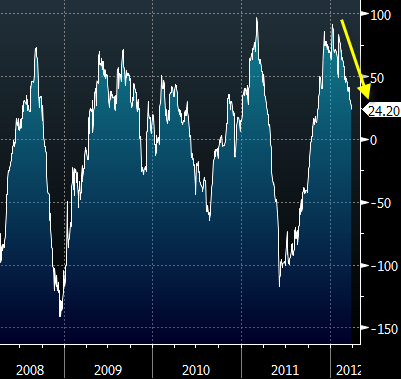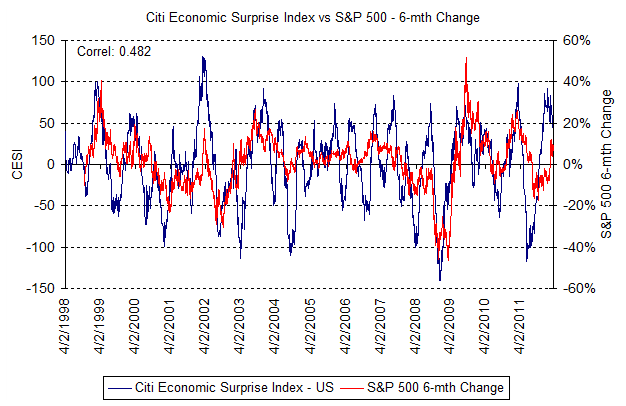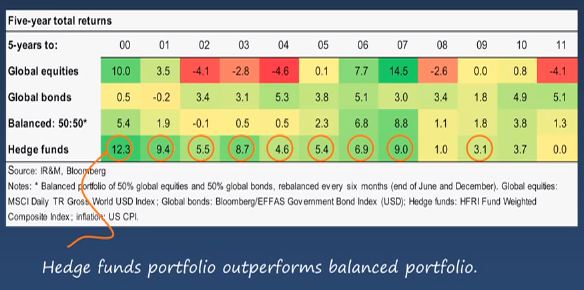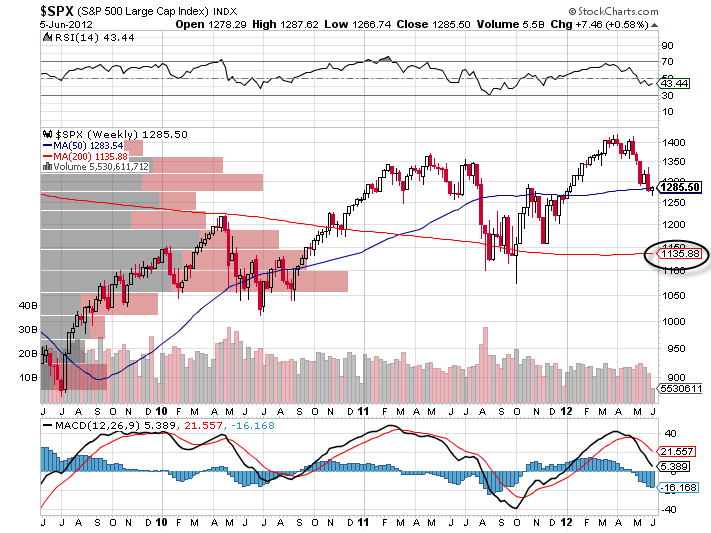by Michael Tarsala, CMT
Here is an important index to know about, and one that the folks at Citi say is now flashing a near-term stock market warning signal:
The Citigroup Economic Surprise Index is still positive, but is now on the decline, as you can see below. It reflects more modest or disappointing economic data relative to expectations.

Source: Forexpros.com
The St. Louis Fed is where you can find more background about the index, including how surveyed economists tend to hold on to their optimistic and pessimistic biases for too long.
The CESI index, though, may also give cues about stock market direction. As noted strategist Ed Yardeni points, out, it tends to be correlated with price-to-earnings multiples.
But it may be saying something even more directly about stock prices. Check out this chart from Citi:

Source: Citigroup Inc.
There is not a very strong correlation coefficient between the CESI and the 6-month price change in the S&P 500 (it’s only 0.48: a high correlation coefficient would generally be 0.70 or above).
That said, you will notice that with few exceptions — 2009 being one of them — the declines in the CESI back down from the 50 level tend to result in stock market weakness in subsequent months.
It’s now fallen back down from just such a high level in recent weeks.
Said Citi strategist Tobias Levkovich: “With the S&P 500 up 24% from its lows, (it’s now up about 29% since his comment), commeasurate with the CESI beginning to rebound off its lows, the downward shift in the index could signal some near-term market weakness.”
And there’s more. The CESI index we have been talking about is for U.S. expectations. There is separate one for G10 countries, and it is falling, too. It’s now at a reading of 13. And it, too, is starting to capture some attention.
Money markets and stocks veteran Tom Lovell noted late last week that, “it will be nearly impossible for risk markets to hold up” if the CESI for the G10 were to fall below zero.”



